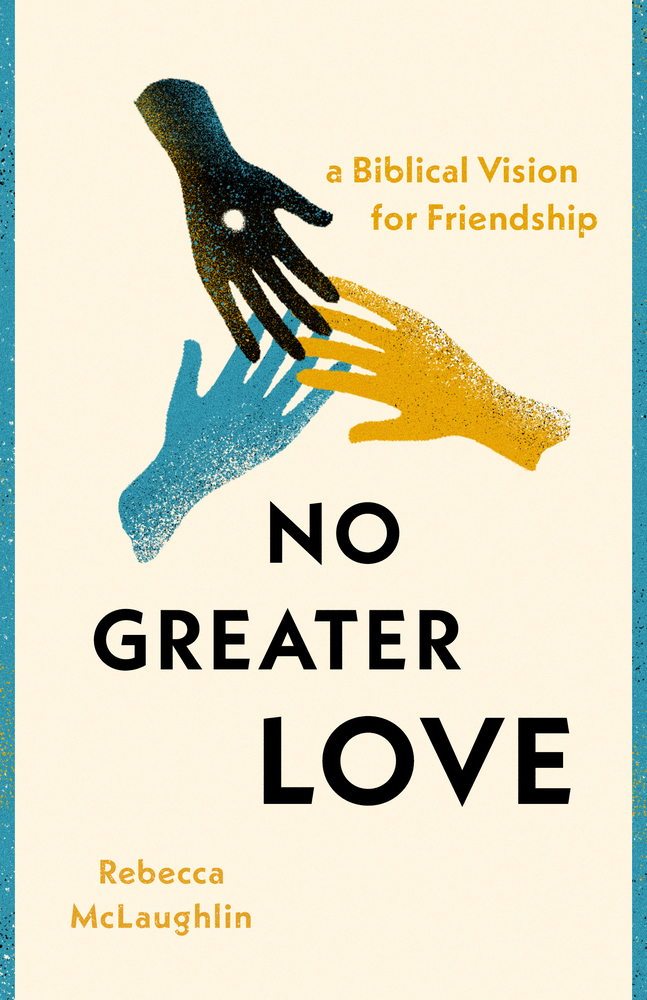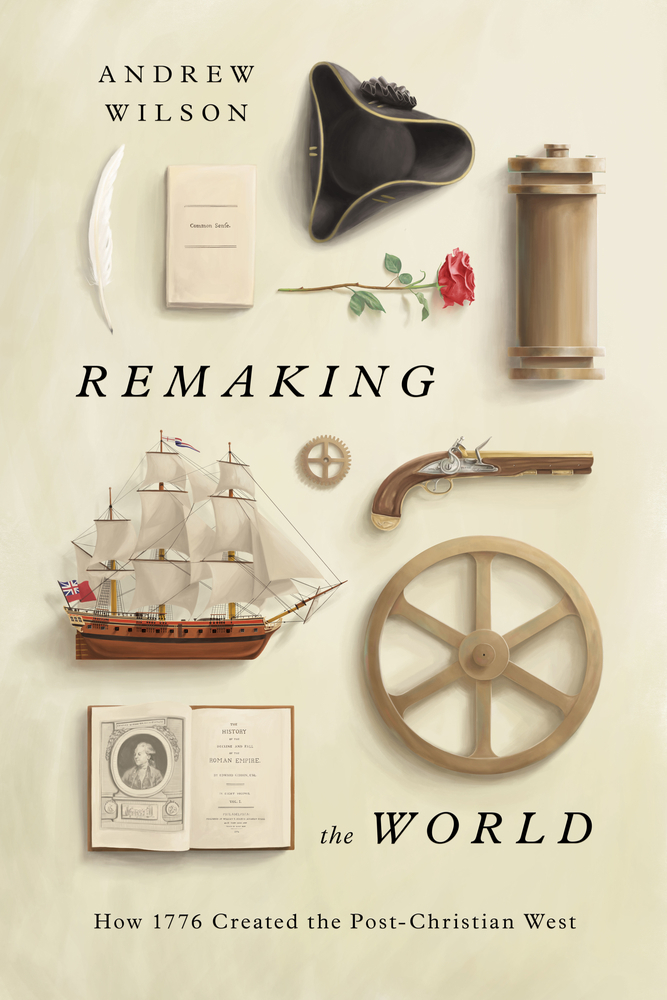
I would strongly encourage you to read or listen to anything that Rebecca McLaughlin puts out. Not because she is perfect in any way, but she is remarkably gifted at pointing to Jesus in all things. I’ve read all of her books and picked up No Greater Love this summer interested in learning how to be a better…Christ-honoring…friend.
In this work, she emphasizes the importance of friendship for Christians, highlighting its vital role in their flourishing and its comparison to other forms of love. Friendship is seen as a pointer to a greater love demonstrated by Jesus, and the ability to image Christ to non-believers in this connection. The text explores the significance of friendship in ancient and modern times, categorizing it as friendships of pleasure, utility, and virtue, with an emphasis on the deeper investment required for virtuous friendships. Jesus’ call for sacrificial love and the idea that Christian friendships should be based on shared mission are discussed, highlighting the importance of gospel-spreading partnerships and countercultural living. The text concludes with a reflection on the interconnectedness of Christian friendships and the need for Jesus’ help to navigate the challenges and vulnerabilities inherent in forming deep, meaningful relationships.
I highlighted several things while reading and have posted those notes below…
- For Christians, I will argue, friendship is no optional extra life feature we might get talked into by an eager salesman. It’s vital to our flourishing. Friendship at its best is just as powerful as any other love. But like each one of God’s amazing gifts to us, it’s life-giving if we embrace it well, and soul-sucking if we don’t. Location 159
- If you are not a Christian, my hope is that this book will help you grow in friendship. But I also hope that you will see how friendship is a pointer to an even greater love: the love that Jesus showed to you when He laid down his life two thousand years ago. If Christianity is true, then any joy, delight, and comfort we might find in friends is just an echo of that greater love. While other friends will never ultimately satisfy, the one Friend who has loved us to the point of an excruciating death is also ready and equipped to walk us through our own death into everlasting life—if we will only let Him take our hand. Location 167
- “To the Ancients,” C. S. Lewis observed, “Friendship seemed the happiest and most fully human of all loves; the crown of life and the school of virtue.”4 In the fourth century BC, the Greek philosopher Aristotle stated bluntly that “without friends no one would choose to live, though he had all other goods.”5 Aristotle famously put friendship in three categories: friendships of pleasure, of utility, and of virtue.6 In today’s terms, we might see the first as friendships built around shared interests; the second as networking; and the third as friendships we invest in in a deeper sense—ones in which each person seeks the other’s good and recognizes the goodness in the other as they seek to grow in goodness side by side. Many in our society today have friends of pleasure or utility; fewer have friends of virtue. These relationships take much more serious investment. Location 209
- When Jesus calls His followers to love each other just like He loves them, He’s not just going with the grain of natural friendship. He is calling people who might never have gone near each other into sacrificial-love relationships. Likewise, we should be ready to form Christian friendships with those utterly unlike us. Location 306
- Friendship is a vehicle for the gospel in the sense that its cross-shaped: formed for life laid down in love for others, just as Jesus laid down His own life for us. Location 312
- To help us think through Sunday morning hospitality, Bryan has formulated three rules of engagement: #1: An alone person in our gatherings is an emergency. #2: Friends can wait. #3: Introduce a newcomer to someone else. Location 517
- Mission is the throbbing heart of Christian friendship, and how we get close to one another not by running after friendship but by marching into battle with each other: spurring one another on, having one another’s backs, and binding up each other’s wounds. Location 724
- Our closest friendships, if we’re Christians, should be gospel-spreading partnerships: enduring bonds forged in the fire of shared mission. In a culture that feels starved of friendship, Christians should be living as a counterculture. But our counterculture shouldn’t be constructed on a framework of shared leisure time activities, or our enjoyment of the latest Christian songs. Healthy Christian friendships spring up on the battlefield of gospel mission. Conversely, if our friendships with believers consistently draw us back from battle into entertainment mode, they may be quite enjoyable. But they’re falling short of Jesus’ call. Location 761
- But were it not for Tolkien’s camaraderie with C. S. Lewis, his greatest work would likely never have been published. In a letter to another friend, Tolkien wrote: I have never had much confidence in my own work, and even now when I am assured (still much to my grateful surprise) that it has value for other people, I feel diffident, reluctant as it were to expose my world of imagination to possibly contemptuous eyes and ears. But for the encouragement of C. S. Lewis, I do not think that I should ever have completed or offered for publication The Lord of the Rings. Location 810
- The closeness that produces fruitfulness comes with deep vulnerability. As soldiers have each other’s backs, they also open themselves up to friendly fire. Location 888
- When we find ourselves in cozy, Christian inner rings, we must ensure those rings are not ends in themselves, but opportunities to challenge and equip each other for the work the Lord is calling us to do—and that each person in the ring is also reaching out to others to include them in the chain mail. Location 992
- Our best friends are directing us to Jesus, not away from Him. They’re with us in the trenches when growth looks like fighting the same battles time and time again. They’re not looking down on us. They’re looking forward with us to the time when we’ll be joined with Jesus and with each other perfectly in the one-body unity of resurrection life. When my boat was racing, I would sometimes shout out to our coach, “How much longer?” I was pulling as hard as I could, and I needed to know when it would all be over. As followers of Jesus, we don’t know how long our race will be. But we do know that we are in it together—not just as one team, but as one body, united in Christ. While we await His return, let’s build each other up in love, because—at the end of the day—we’re one body together. Location 1233
- My closest friends who know my inner life are also drawing me to be a better version of myself. Location 1374
- As I’ve reflected on this season in my life, I’ve pondered on Hosea’s loving invitation to God’s people: “Come, let us return to the LORD; for he has torn us, that he may heal us; he has struck us down, and he will bind us up. After two days he will revive us; on the third day he will raise us up, that we may live before him.” (Hos. 6:1–2) Location 1934
- I can’t do Christian friendship without Jesus. Neither can you. Without Jesus’ help, we’ll fail at fighting the good fight. We’ll cling to idols and form selfish inner rings. We’ll hate the discipline of mutual accountability and love the snugness and superiority that comes from leaving others out. We’ll play it safe because we cannot face the vulnerability of closeness, and so we’ll miss the chance to find our very heart in friends who love the Lord with all of theirs. Location 1949

